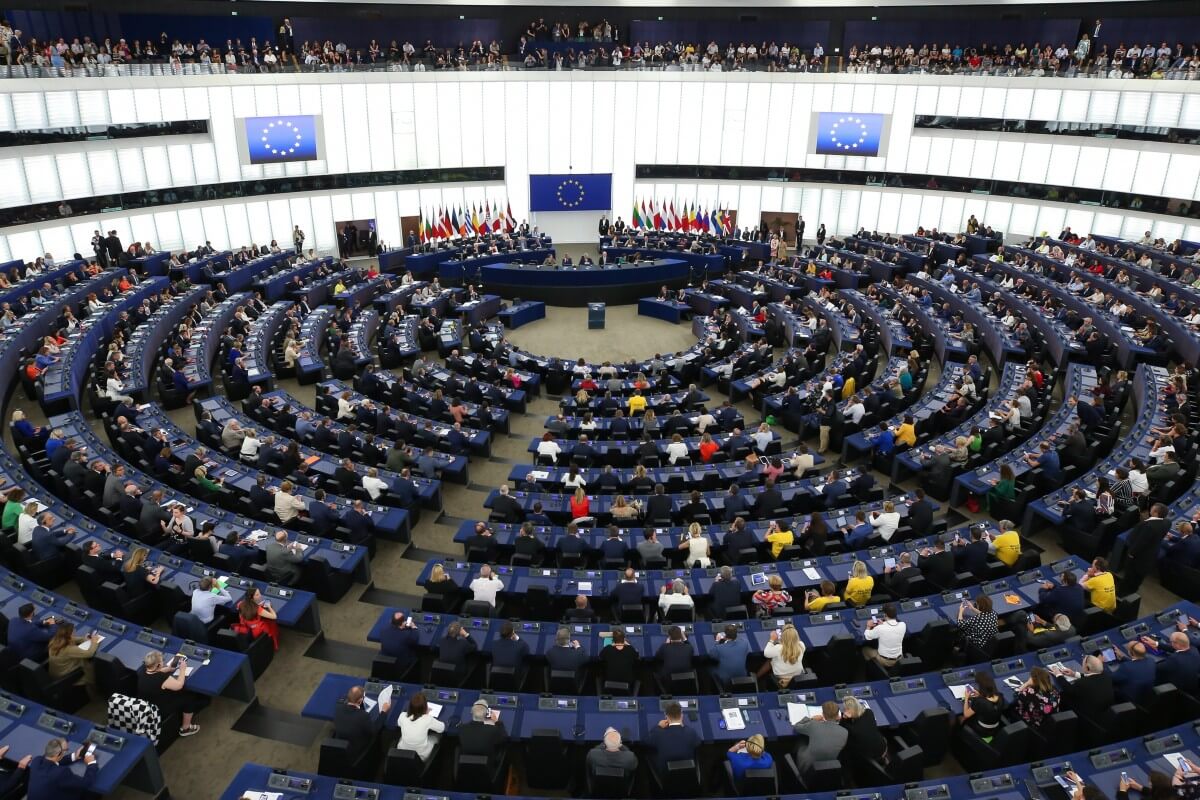Through a resolution adopted by the European Union (EU) on June 19, the European Parliament condemned China’s proposed National Security Legislation, which it considers to be an attack on Hong Kong’s autonomy. The Parliament has decided to take China to the International Court of Justice (ICJ) if it imposes the new National Security legislation in Hong Kong. In a vote, Members of the European Parliament 565 votes in favour of the resolution, while there 34 voted against; there were also 62 abstentions.
The resolution said that the MEPs “call on the EU and its Member States to consider, in the event the new security law is applied, filing a case before the International Court of Justice alleging that China’s decision to impose national security legislation on Hong Kong violates the Sino-British Joint Declaration and the International Covenant on Civil and Political Rights (ICCPR)”.
Further, the resolution said that the Parliament “calls on the EU and its member states to consider, in the event the new security law is applied, filing a case before the International Court of Justice.” The resolution also urged the EU to assess the viability of imposing economic sanctions. The statement said that the Parliament “believed that the EU should use its economic leverage to challenge China’s crackdown on human rights by economic means”. Further, the resolution called for the release of peaceful protestors and pro-democracy activists. While the resolution has taken a positive stance against human rights violations in China, it is “not legally binding.” The resolution will now be passed on to the European Commission, who merely needs to consider the resolution and is not obligated to take action on the recommendations. For instance, in January, the European Parliament passed six resolutions criticising India's passage of the Citizenship (Amendment) Act. As this raised concerns about what this would mean for the future of EU-Indian relations, the EU Spokesperson for Foreign Affairs and Security Policy, Virginie Battu-Henriksson, said that this was merely a recommendation reflecting the opinion of political groups in Europe and did not reflect EU's “official position” on the issue. However, in the past, such resolutions have steered policies in the EU.
In response to the resolution, the spokesman for the Foreign Affairs Committee of the National People’s Congress, Mr. You Wenze, said that the decision “distorted the facts” of the issue and was an unnecessary intrusion into Hong Kong’s internal affairs.
The law aims to “improve” Hong Kong’s national security law after it witnessed violent protests over the last few years. Chinese Foreign Minister Wang Yi said that the law is necessary to guard against increasing “foreign meddling”, which China argues has infringed upon its national security. Thus, China wishes to strengthen the “legal system”, the “rule of law”, and enforcement mechanisms to give itself greater control over the former British colony.
In accordance with this, the legislation says, “When needed, relevant national security organs of the Central People’s Government will set up agencies in Hong Kong to fulfill relevant duties to safeguard national security in accordance with the law.” This essentially paves the way for China to set up law enforcement agencies which run parallel to—and supersede—the city’s existing security forces. In essence, this strips yet another layer of autonomy from Hong Kong.
The proposed legislation has drawn international condemnation, with US Secretary of State Mike Pompeo saying that it subverts the “will of the people” and represents a “death knell” for Hong Kong’s “high degree of autonomy, democratic institutions, and civil liberties”. His sentiments were echoed in a joint statement by UK Foreign Secretary Dominic Raab, Australian Foreign Minister Marise Payne, and Canadian Foreign Minister François-Philippe Champagne, who expressed their “deep concern” at the proposed new security law. Raab also referenced the “legally binding Joint Declaration, signed by the China and the UK”, which stipulates that Hong Kong must continue to enjoy a “high degree of autonomy”, and “rights and freedoms, including those of the person, of the press, of assembly, of association and others”.
Also Read: China Rebukes International Criticism of Proposed New Security Law in Hong Kong
At the time, the EU refrained from joining the joint statement issued by the US, the UK, Australia, and Canada, indicating the bloc’s commitment to continuing friendly relations with China. However, after the recent resolution, this position has evidently changed. Meanwhile, the US and the UK went forward with their promise to take action against China. While the US imposed trade sanctions, the UK offered to provide asylum to 3 million Hongkongers.
Hong Kong's National Security Law Coverage:
- US No Longer Considers Hong Kong Autonomous From China
- Mike Pompeo Says US Report Assessing Hong Kong Autonomy to Be Delayed
- UK Vows to Admit Nearly 3 Million Hong Kongers if China Imposes New Security Law
Image Source: South China Morning Post

